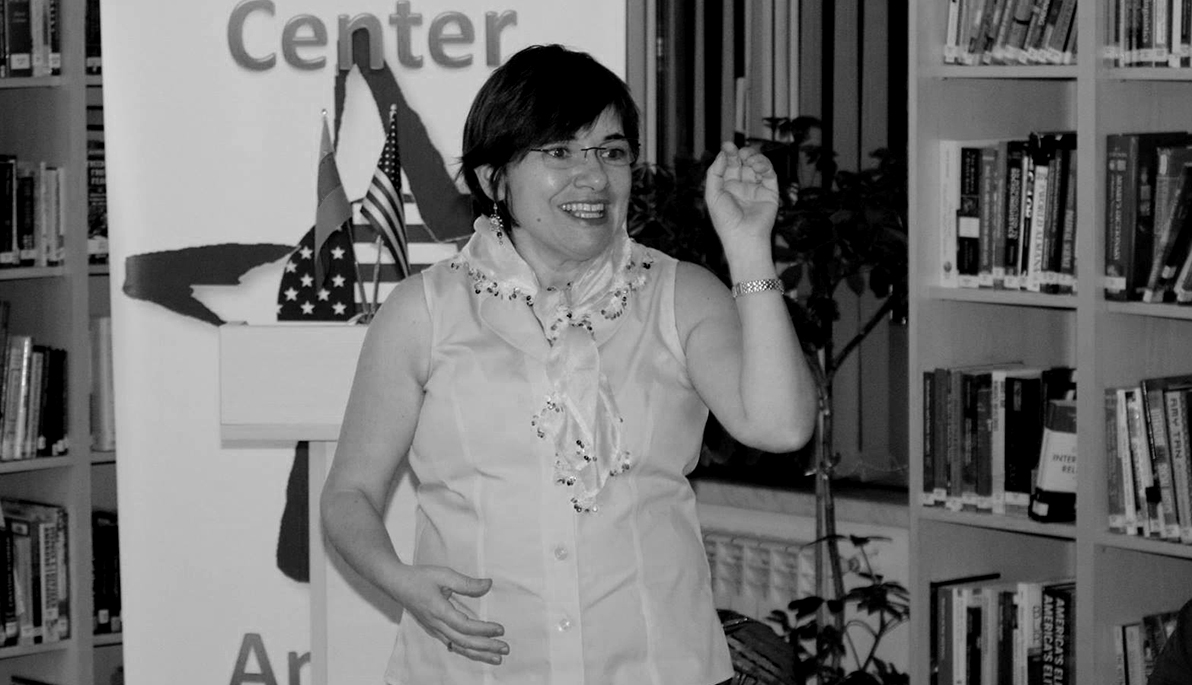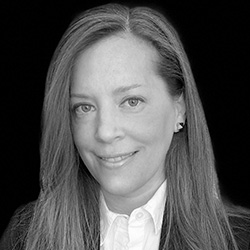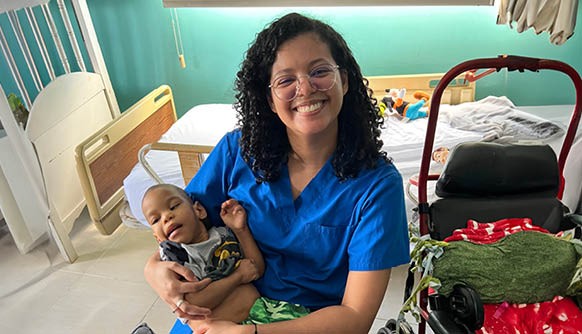News
NYIT Fulbright Scholar Explores New Technologies in the Classroom
February 23, 2017
Photo: Melda Yildiz at the Baku American Center in Azerbaijan.
Two-time Fulbright Scholar Melda Yildiz, associate professor and chair of Instructional Technology in NYIT School of Interdisciplinary Studies and Education, travels the globe to research educational technology in teacher education. Her first Fulbright in 2009 took her to Turkmenistan, where she focused on cultivating global competencies and 21st century skills among teacher candidates using Turkmen literature. This past fall, she traveled to Azerbaijan for her second Fulbright, “Transforming Teacher Education Through Transdisciplinary Innovative Pedagogy: Participatory Action Research,” during which Yildiz investigated the role of new media and technologies in the classroom and how they can improve teacher education.
“My research can be described as ‘participatory action research’—an approach to research that emphasizes participation and action,” explains Yildiz. For her most recent Fulbright, Yildiz drew on her Azerbaijani colleagues and students to serve as participants in her study. First, they did a self-study of the education system and then, Yildiz led them in a discussion about numerous K-12 educational challenges. “For instance, we explored how education assessment and technology can improve teaching and learning,” she says. “Teachers and students not only identified the issues, but also worked on finding low-tech innovative solutions.”
The group explored several solutions at a workshop at the Baku American Center, which was coordinated by Yildiz. During the three days, teachers and students developed their educational technology skills and worked on interactive and inclusive projects. They used educational apps, as well as software and mobile technologies, augmented reality, virtual reality and GPS (Geographical Positioning System) in educational practices.
“The way we learn is transitioning from paper and pencil to digital and web-based applications,” says Yildiz. “Fostering various digital and web-based learning is becoming essential, even if many educators are not comfortable with these new technologies.”
Yildiz’s passion for advancing educational practices and incorporating new technologies within teaching goes back many years. Growing up in Turkey, she had limited access to books in Turkish, and had no access to books in English, computers, or any educational materials. Yet, she became the only person in her family to attend a four-year college. “That’s why I have never taken anything for granted,” she says.
While attending Boğaziçi University in Istanbul, she took an educational technology course that changed her life. “The pictures and the educational materials that our college professors showed us inspired me to explore new technologies to improve my teaching skills,” she recalls.
Now, through this research, Yildiz aims to advance traditional teaching methods and promote “heutagogy” (self-determined learning, where the student is the center of their own learning). “In my courses, I encourage students to learn how to learn, not just to complete assignments to get the high grade,” she says.
Her experience in Azerbaijan also allowed Yildiz to see a new part of the world, which in turn inspired her to change her teaching ideas and develop new points of view.
“My Fulbright experience was important for me to humble myself and learn from my Azerbaijani colleagues.”





